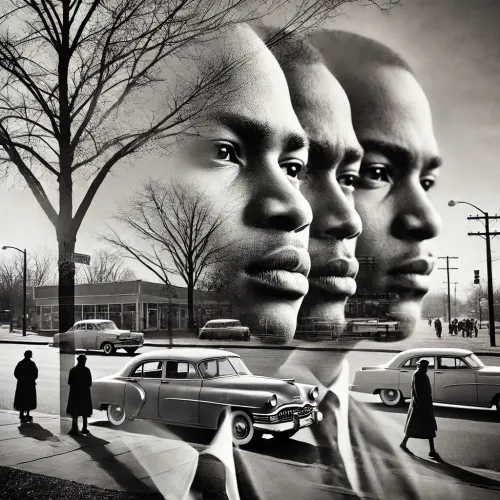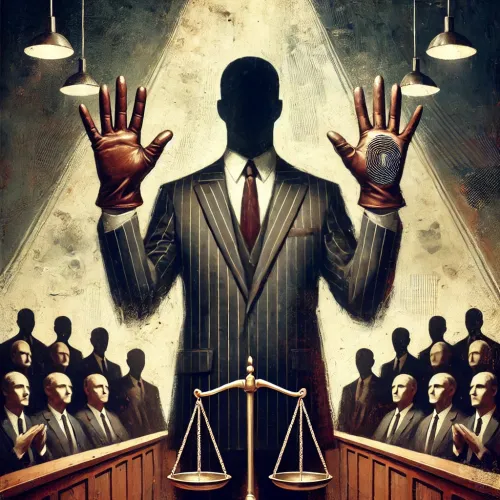Jury nullification is one of the most controversial yet essential aspects of the American legal system. It allows jurors to acquit a defendant, even in the face of clear evidence, if they believe the law is unjust or its application in the case is inappropriate. While jurors have the right to nullify, attorneys face stringent ethical restrictions that prevent them from openly advocating for nullification during trials. This limitation creates a troubling disconnect between the principles of justice and the legal system’s rigid enforcement of the law.
The prohibition on nullification arguments stems from concerns about the rule of law. Courts often assert that encouraging jurors to nullify could lead to inconsistent verdicts, eroding confidence in the legal system. Attorneys who attempt to introduce nullification arguments risk sanctions, disbarment, or being held in contempt of court. Judicial instructions further reinforce these restrictions, directing jurors to apply the law as given, with no acknowledgment of their right to exercise independent judgment.
While these restrictions aim to preserve legal order, they effectively silence a critical avenue for justice. Attorneys serve as advocates, not just for their clients but for the broader principles of fairness and morality. Prohibiting them from raising nullification arguments undermines this role, forcing them to operate within a framework that prioritizes legal conformity over justice. Defendants charged under unjust laws—such as harsh mandatory minimum sentences for nonviolent drug offenses—are particularly disadvantaged when their lawyers cannot inform jurors of their ability to act as a check on the system.
The ethical restrictions on nullification arguments also reflect a misunderstanding of nullification’s role in history. Far from being a chaotic or rogue practice, nullification has been a vital mechanism for resisting injustice. In the 19th century, juries refused to convict individuals who violated the Fugitive Slave Act, rejecting laws that upheld the institution of slavery. Similarly, during Prohibition, jurors frequently acquitted defendants charged with alcohol-related offenses, signaling public disapproval of the law. These acts of defiance were not threats to the rule of law but affirmations of the principle that justice must prevail over legality.
Critics of nullification argue that allowing attorneys to promote it could lead to abuses, such as jurors acquitting based on prejudice rather than principle. While this concern is valid, it is not a sufficient justification for blanket restrictions. Misuses of nullification are exceptions, not the rule, and can be mitigated through safeguards such as robust jury selection processes and education about the responsibility of jurors to act ethically. Suppressing nullification arguments entirely, however, denies jurors the opportunity to consider the broader implications of their verdicts and leaves defendants at the mercy of unjust laws.
Moreover, the restrictions on nullification arguments conflict with the adversarial nature of the legal system. Defense attorneys are tasked with zealously representing their clients within the bounds of the law. Yet, these bounds are artificially narrowed when they cannot argue for nullification, even in cases where the law clearly conflicts with justice. This limitation shifts the balance of power in the courtroom, favoring the prosecution and the state’s authority over the defendant’s right to a fair trial.
Reforming these restrictions would not dismantle the rule of law but strengthen it by aligning legal outcomes with societal values and moral principles. Attorneys should be allowed to raise nullification arguments when appropriate, providing jurors with a fuller understanding of their role as independent arbiters of justice. Judges, too, should acknowledge nullification as a legitimate aspect of the jury’s function, rather than treating it as a subversive or rogue practice.
Critically, empowering attorneys to discuss nullification would foster greater transparency in the legal system. Currently, nullification is an unspoken right, often left to jurors to discover independently. This lack of transparency undermines trust in the process, leaving jurors unaware of their full authority and defendants unable to fully present their case. Openly addressing nullification in courtrooms would restore balance, ensuring that the justice system serves its ultimate purpose: delivering fair and equitable outcomes.
In addition, historical and contemporary examples demonstrate that nullification often aligns with public sentiment. The failure to convict in cases involving civil disobedience, nonviolent protests, or minor drug offenses reflects a growing recognition that some laws are outdated, overly punitive, or poorly applied. By barring attorneys from advocating for nullification, the legal system ignores these societal shifts, perpetuating laws that no longer align with community values.
Attorney privilege should include the ability to raise nullification arguments in cases where justice demands it. Restricting this advocacy denies defendants a critical defense and erodes the jury’s power to challenge systemic injustices. Far from undermining the rule of law, empowering attorneys to discuss nullification would enhance it by ensuring that the legal system remains grounded in fairness and humanity.
Ultimately, the ethical restrictions on nullification arguments reflect a broader tension between legal order and moral conscience. By reforming these prohibitions, we reaffirm the jury’s role as a cornerstone of democratic justice and restore the attorney’s ability to fully advocate for fairness. Justice is not served by silencing critical arguments—it is served by embracing the principles that make the jury system a safeguard against tyranny and oppression.




